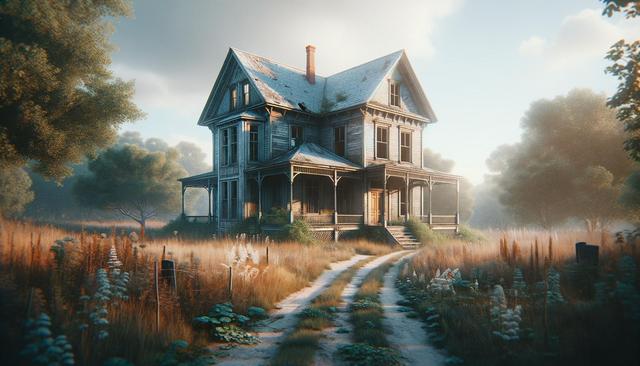Why Consider Buying an Abandoned House?
For many homebuyers and investors, the idea of purchasing an abandoned house can be both exciting and daunting. These properties often come with a lower price tag compared to traditional homes on the market, making them attractive for those on a budget or looking to invest in real estate. Abandoned houses can be found in a variety of conditions—from relatively maintained to needing significant renovation—so evaluating risk versus reward is essential. Some of the key reasons to consider buying an abandoned home include:
- Lower purchase prices compared to market-ready properties
- Potential for high return on investment through renovation
- Possibility of customizing the home to suit personal preferences
- Opportunities to revitalize neighborhoods and communities
However, it’s important to remember that these properties require due diligence. Thorough inspections and understanding the legal status of the home (such as resolving liens or back taxes) are crucial steps in the process.
How to Find Abandoned Houses in Your Area
Locating abandoned houses for sale near you requires a mix of online research, local knowledge, and sometimes investigative work. While there isn’t always a direct listing under “abandoned,” these homes can often be found through specialized searches or by contacting local authorities. Here are several ways to start your search:
- Utilize online real estate platforms and filter by foreclosures or fixer-uppers
- Check with your local county tax assessor or clerk’s office for delinquent property records
- Drive through neighborhoods to look for obvious signs of abandonment, such as overgrown lawns or boarded-up windows
- Speak with local real estate agents who may have insider knowledge of off-market properties
In addition, some municipalities offer programs that list vacant properties for sale to encourage urban renewal. These programs might have specific requirements, such as renovation timelines or occupancy mandates, so be sure to review the details.
Understanding the Costs and Legal Considerations
While the initial cost of an abandoned house may be low, potential buyers should anticipate additional expenses that can add up quickly. These include necessary repairs, utility reconnections, and legal fees. It’s also essential to confirm who holds the title to the property and whether there are outstanding debts attached to it. Buyers should be prepared to:
- Hire a professional inspector to assess structural integrity and safety
- Consult with a real estate attorney to navigate the purchase process legally
- Budget for permits, renovations, and ongoing maintenance
- Understand zoning laws and neighborhood restrictions
Some properties may also be part of probate sales or auctions, which come with their own set of legal procedures and timelines. Taking the time to understand these aspects will help avoid costly surprises down the line.
Renovation Tips for Abandoned Properties
Restoring an abandoned house can be a rewarding project, but it also demands careful planning and resource management. The extent of renovations will depend on the property’s condition and the buyer’s vision. Common issues include outdated plumbing, electrical problems, roof damage, and mold or pest infestations. To increase the likelihood of a successful renovation:
- Create a detailed renovation plan with a realistic timeline
- Prioritize structural repairs over cosmetic upgrades
- Work with licensed professionals for major systems like HVAC and electrical
- Apply for local grants or tax incentives for restoring historic or vacant homes
In some cases, buyers choose to live in the home while slowly renovating, while others may opt to complete the work before moving in or renting it out. Either approach requires patience, flexibility, and a steady budget.
Long-Term Value and Community Impact
Buying and restoring an abandoned house isn’t just a personal investment—it can also contribute positively to the wider community. Revitalizing vacant properties helps reduce neighborhood blight, increases property values, and can even improve safety and local morale. Many cities encourage the restoration of abandoned homes through community development programs and public-private partnerships.
For those with a long-term view, these homes can become rental properties, vacation homes, or even be resold after improvements. Additionally, some buyers take pride in preserving a piece of local history, especially if the house has architectural significance. In the broader sense, investing in such properties can be a meaningful way to participate in urban renewal efforts and breathe new life into underutilized areas.
Conclusion: Is Buying an Abandoned House Right for You?
Purchasing an abandoned house near you can be a unique opportunity to create something valuable from a neglected property. Whether you’re a first-time homebuyer, a seasoned investor, or someone passionate about restoration, these homes offer potential rewards worth exploring. However, success depends on thorough research, careful planning, and a willingness to take on challenges. By understanding the process and being prepared, you can turn an overlooked structure into a place of purpose and pride.






